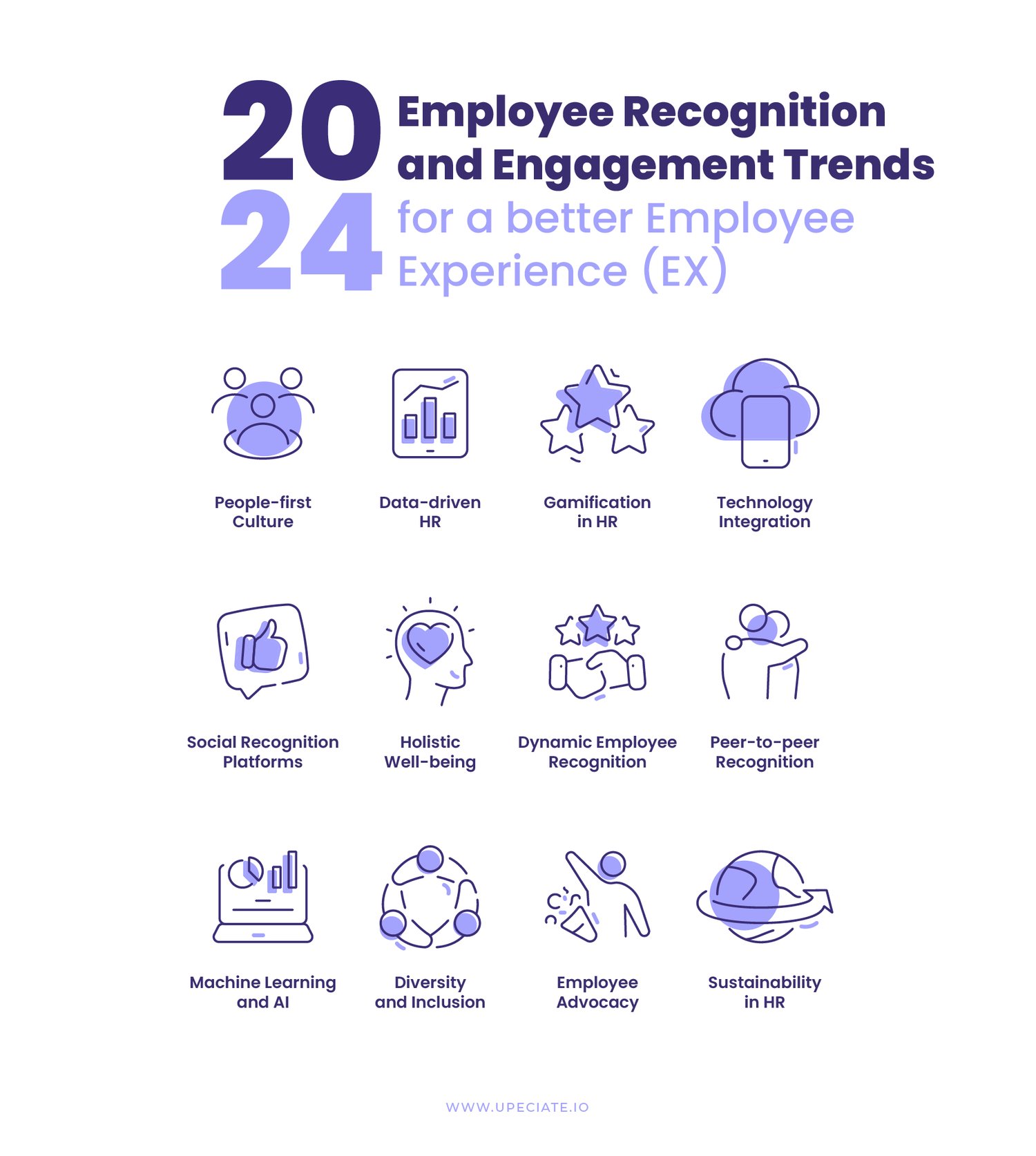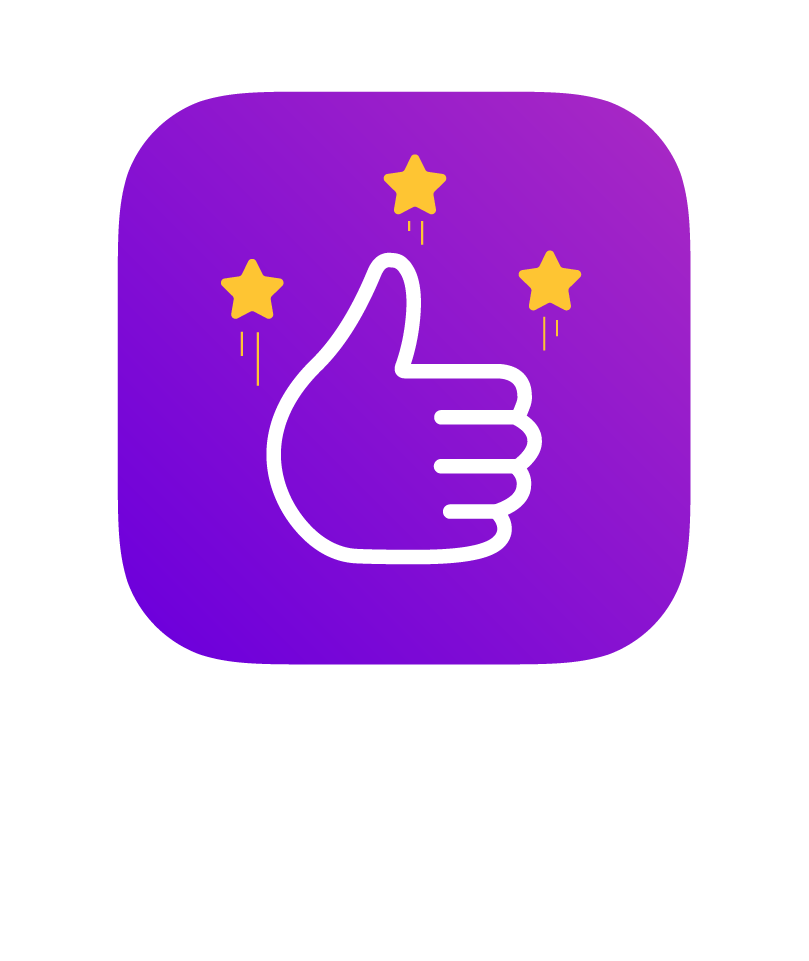HR leaders face many challenges in 2024, according to Gartner. Employee experience has become a priority for many companies. HR leaders hope to strengthen employee trust and engagement while adapting to new ways of working. Discover the main trends that are expected to shape the workplace in 2024:
1. People-first culture
Build a workplace ethos that prioritizes the well-being, empathy, growth, and satisfaction of its employees as the central focus of organizational practices. Rooted in the belief that a content and engaged workforce is essential for overall success, a people-first culture places emphasis on creating an environment where individuals feel valued, respected, and supported. Foster open communication, provide opportunities for professional development, and recognizing and appreciating the diverse contributions of employees.
2. Data-driven HR
By leveraging insights derived from employee data, organizations can make more informed and evidence-based decisions related to talent acquisition, employee engagement, performance management, and workforce planning. This approach involves collecting and analysing various HR metrics, such as employee turnover rates, productivity indicators, and diversity metrics, to gain a comprehensive understanding of the workforce. Data-driven HR enables organizations to identify trends, forecast future needs, and implement targeted strategies to optimize HR processes and positively impact overall business outcomes. Organizations assess the impact of recognition programs and tailor their approaches to individual and team needs. This ability to measure the efficacy of recognition efforts is now a critical factor in shaping strategies for sustained employee engagement.
3. Gamification in HR
The gamification trend in HR continues to gain momentum as organizations recognize its potential to enhance employee engagement and performance. By integrating game-like elements such as challenges, points and rewards into various HR processes, companies aim to make work more enjoyable and motivating. Gamification is being increasingly utilized in areas like employee recognition, training and development, onboarding, and performance management. It not only fosters a sense of accomplishment and recognition but also provides employees with a more interactive and immersive learning experience. As technology advances, incorporating gamification elements in HR processes is becoming more accessible and customizable, allowing organizations to tailor their approach to the specific needs and preferences of their workforce. This trend underscores the ongoing effort to create innovative and engaging HR practices that contribute to a positive and dynamic workplace culture.
4. Technology integration
The adoption of various technologies, including artificial intelligence, machine learning, data analytics, and cloud-based solutions, are crucial to enhance employee experiences and optimize talent acquisition, employee management, and overall HR operations. The integration of technology in HR facilitates more efficient recruitment processes, enable real-time feedback, data-driven decision-making, and the automation of routine administrative tasks. This trend underscores the ongoing commitment to leveraging cutting-edge solutions to improve HR efficiency, foster innovation, and create a more agile and responsive human resources function within organizations.
5. Social Recognition Platforms
Social recognition platforms have gained prominence due to the increasing demand for transparency and visibility in acknowledgment within organizations. These platforms create a public space (within the organization) where employees can openly express appreciation for their colleagues, fostering a culture of collaboration and openness. Beyond traditional hierarchies, social recognition breaks down silos, promoting unity. The key benefits include enhanced visibility, facilitating peer-to-peer recognition, and real-time acknowledgment of achievements. These platforms contribute to building an inclusive culture by providing a space for employees across departments and levels to interact, reinforcing a sense of belonging and unity in the workplace.
6. Holistic well-being
Companies are increasingly recognizing the importance of physical health, mental wellness, and job satisfaction. Initiatives such as wellness programs, mental health resources, and flexible work arrangements are gaining traction, signalling a shift towards a more comprehensive approach to employee engagement. Holistic well-being encompasses a comprehensive approach to individual health and happiness, recognizing that well-being extends beyond physical fitness to include mental, emotional, and social dimensions. It emphasizes the interconnectedness of various aspects of a person's life, aiming to foster balance and fulfilment in both personal and professional spheres. This approach involves promoting practices that contribute to mental clarity, emotional resilience, positive relationships, and a sense of purpose. By addressing the entirety of an individual's well-being, organizations and individuals can work towards creating environments that support holistic wellness, ultimately leading to increased job satisfaction, improved productivity, and a more harmonious and sustainable way of living.
7. Dynamic Employee Recognition
Recognizing the importance of immediate acknowledgment, companies are shifting towards agile recognition systems that facilitate timely and specific feedback, like Upreciate. A Harvard Business Review study found that employees are 40% more engaged when they receive recognition from their managers. A different study from Glassdoor found that 80% of employees are motivated to work harder when their boss shows appreciation for their work.
8. Peer-to-peer recognition
The democratization of recognition is a growing trend, with the rise of peer-to-peer acknowledgment. This approach is becoming increasingly popular, breaking down hierarchical barriers and cultivating a culture of appreciation at all organizational levels. This shift empowers employees, fostering inclusivity and collaboration throughout the work environment.
9. Machine Learning (ML) and Artificial Intelligence (AI) in HR
According to Gartner, 52% of HR leaders were exploring potential use cases and opportunities when it came to generative AI and aim to use generative AI to improve employee experience. The integration of Machine Learning (ML) and Artificial Intelligence (AI) in HR represents a transformative trend with profound implications for workforce management. ML and AI applications in HR processes range from talent acquisition and candidate screening to employee engagement and performance analysis. These technologies leverage data analytics to identify patterns, predict outcomes, and automate routine tasks, streamlining HR operations and enabling more data-driven decision-making. By automating repetitive tasks, ML and AI free up HR professionals to focus on strategic initiatives and enhance the overall employee experience. Additionally, these technologies contribute to more accurate talent matching, improved employee retention strategies, and personalized learning and development programs, ultimately revolutionizing the way organizations attract, manage, and nurture their human capital.
10. Diversity and Inclusion
Organizations are increasingly recognizing the business benefits of diversity, including improved innovation, creativity, and overall performance. In HR, this trend encompasses inclusive hiring practices, diversity training, mentorship programs, and the establishment of inclusive policies. Companies are also focusing on fostering a culture of belonging, where employees feel supported and encouraged to contribute their unique perspectives. This trend underscores the understanding that a diverse and inclusive workforce is not only a moral imperative but also a key driver of organizational success in a global and interconnected business landscape. In 2024 organizations will focus on creating an environment where individuals from various backgrounds feel welcomed, valued, and empowered.
11. Employee Advocacy
Transforming employees into brand ambassadors involves cultivating a corporate culture where employees are not just workers but enthusiastic advocates for the organization. This process entails instilling a deep understanding of the company's values, mission, and brand identity within the workforce. By fostering a sense of pride and connection, employees are naturally inclined to share positive experiences and embody the brand's ethos in their interactions, both within and outside the workplace. Encouraging open communication, recognizing, and celebrating employee achievements, and providing opportunities for professional development contribute to building a strong sense of loyalty and commitment among employees, further motivating them to authentically represent and champion the organization's brand. In turn, these transformed brand ambassadors become powerful assets, influencing external perceptions, and attracting stakeholders who resonate with the company's authentic narrative.
12. Sustainability in HR
Sustainability is now a crucial element in corporate operations, extending to employee recognition practices. Aligning with the values of socially conscious employees, sustainable recognition includes considerations such as the use of eco-friendly materials in awards, adopting digital recognition platforms to reduce paper waste, incorporating green practices in recognition events, integrating philanthropy into initiatives, and recognizing community involvement. While these practices offer various benefits, businesses may face challenges such as cost considerations and effective communication to successfully implement sustainable initiatives. Despite the challenges, embracing sustainable recognition aligns with ethical and responsible business practices, contributing to a positive organizational culture and reinforcing a commitment to social and environmental responsibility.
These trends are expected to help organizations foster a motivated and productive workforce. Keep up with these trends and adopt strategies that align with your organizational goals and values.


